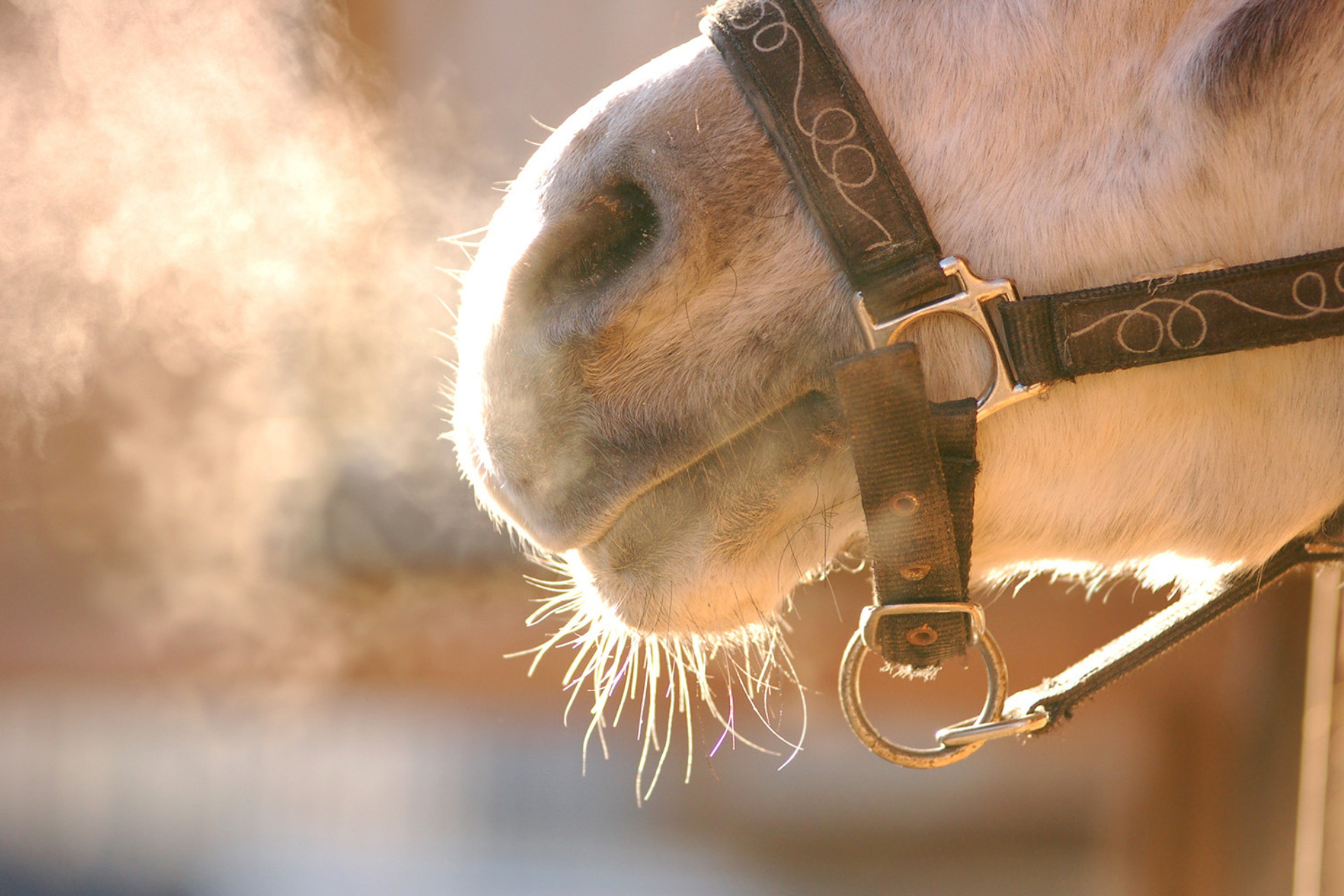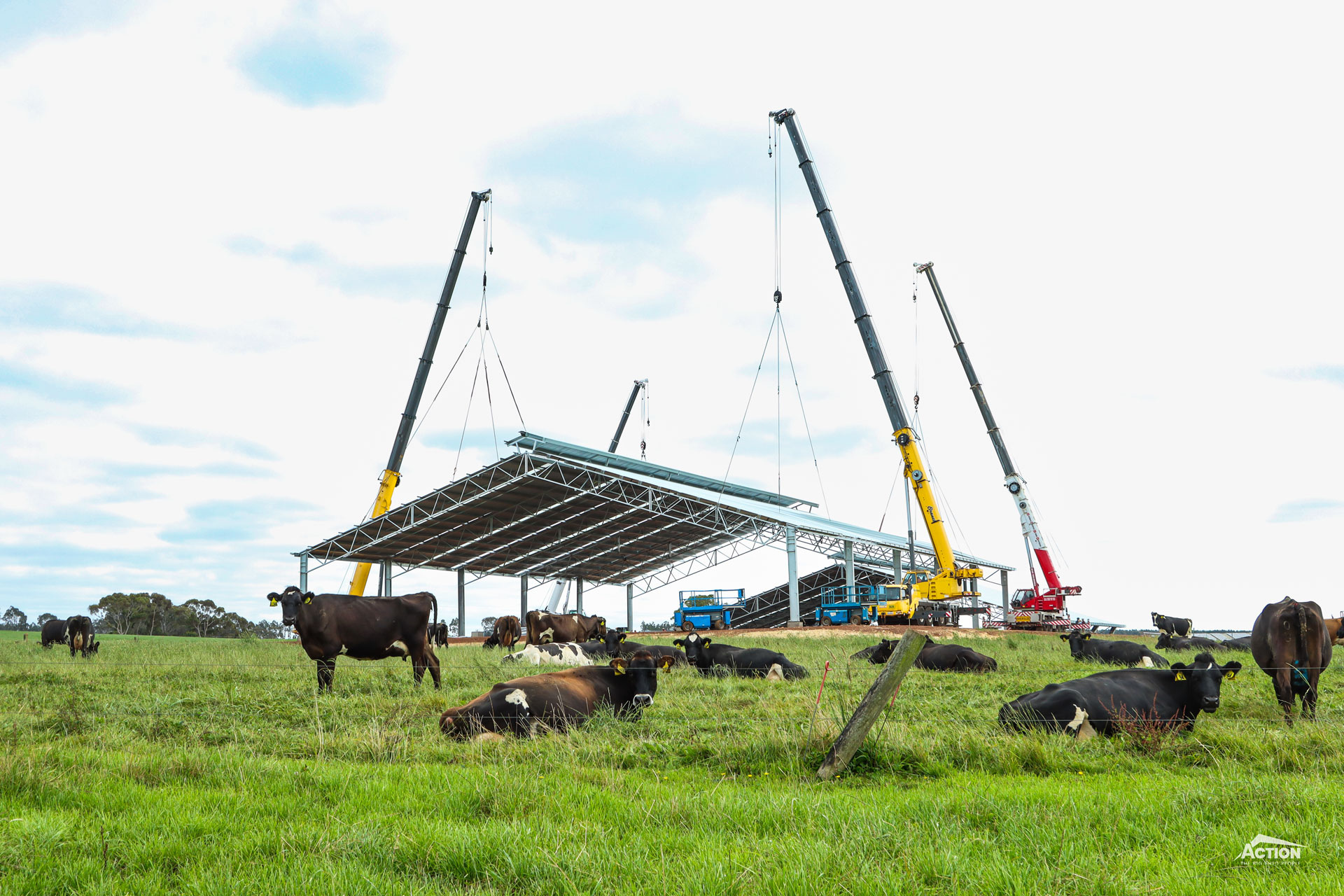Winter is here, and if you are a horse owner, you might be wondering, how does cold weather affect horses – and how cold is too cold for your horse?
In this article we discuss the ways that cold weather can have an impact on a horse’s behaviour and health, and how to care for your horse in the cold winter months.
How Does Cold Weather Affect Horses?
Horses are much more tolerant of cold weather, than humans and their body adjusts to the cooler weather by developing a fatty tissue. The way that cold weather affects horses does vary with geographical location and other factors like the age and the breed of the horse, though – so keep this in mind.
Can Cold Weather Make Horses Sick?
The simple answer is, yes, cold weather can make horses sick.
Horses can get sick if they are exposed to extreme temperatures (hot or cold) for extended periods of time. Horses that are not acclimatised, have an artificially short coat, are in poor condition or are already sick, are particularly vulnerable and susceptible to cold weather. For example, the cold weather can aggravate existing conditions the horse might have, like arthritis, or it could cause the horse to develop respiratory problems.
Exposure to the extreme cold also influences a horse’s behaviour, for example: seeking shelter, drinking less, eating less and moving less. Many of these behavioral changes directly impact the horse’s health too.
Common Horse Sicknesses Caused By Cold Weather
Cold weather can cause a number of different health problems for horses. Some of the most common ways that the cold weather affects horses includes arthritis, colic, frostbite, hypothermia and respiratory illnesses.
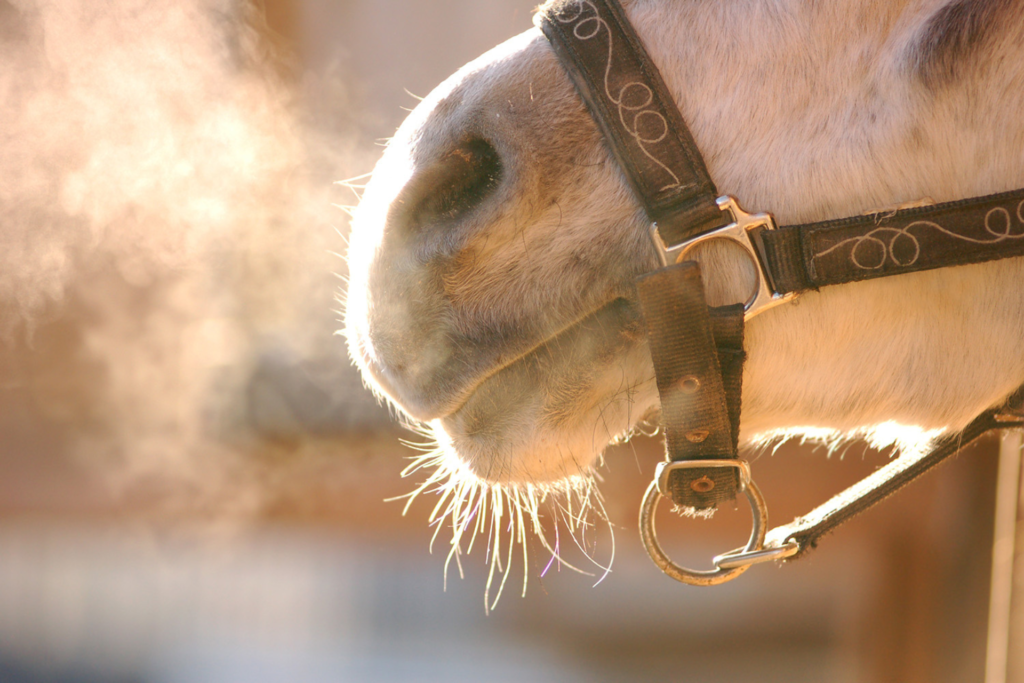
Arthritis
Arthritic joints become aggravated, inflamed and painful in response to changes in temperature and barometric pressure. This is because the joints are surrounded by a fluid called synovial fluid, which helps to lubricate and protect the joint. When the temperature outside drops, the synovial fluid thickens and loses its ability to lubricate the joint, leading to pain and stiffness.
It is important to ensure arthritic horses are kept moving in cold weather as this helps the joint fluid circulate and helps strengthen the muscles and ligaments around the joint.
Colic
While cold weather doesn’t cause colic directly, the changes in a horse’s behaviour due to cold weather can lead to impaction colic. These behavioral changes include eating less and drinking less. Changes we make can also contribute to colic, such as overfeeding or feeding lower quality hay.
This article from Succeed Equine – Four Factors That Increase The Risk Of Impaction Colic In Winter – explains what impaction colic is, how it is caused, and what you can do to reduce the risk of it occurring.
Frostbite
Although not a common issue, frostbite can affect horses in extreme cold weather conditions – cold and wet conditions with no shelter are the worst.
Frostbite occurs when the blood supply to extremities (such as the ears) decreases and the fluid in the extremity’s cells forms ice crystals that damage the cell membranes – this can leave permanent damage. Frostbite most commonly affects the ears, nose and tail, but it can also occur on the legs and feet.
Symptoms of frostbite include pale or grayish-white skin, stiffness and pain.
One of the biggest cold weather concerns is hypothermia (also known as cold stress) which can occur when a horse’s body temperature drops below normal – a normal temperature range is between 37.5°C and 38.5°C Hypothermia can be fatal is not treated immediately, so it is important to be know how to recognise the signs and symptoms and how to prevent it.
Some common signs of hypothermia include shivering, lethargy, muscle stiffness, decreased heart rate, dilated pupils and uncoordinated movement.
If you think your horse may be suffering from hypothermia, it is important to take immediate action such as bringing your horse into a warm environment and slowly warming their body temperature with blankets and warm water – but first consult your veterinarian as warming your horse too quickly can lead to organ failure and death. It is also important to make sure your horse is hydrated and has access to food.
While it is obviously important to take action if you think your horse has hypothermia, there are also proactive steps you can take to prevent it. Some tips for preventing cold stress in horses are:
- Add an electrolyte supplement to their diet
- Make sure they have access to shelter from the wind and the rain
- Provide them with good quality hay
These are very general suggestions only – speak to your veterinarian for expert advice if you think hypothermia could be a potential issue for your horse this winter.
What Horse Breed Is Most Susceptible To Cold Weather?
While any horse can be affected by cold weather, some breeds are more susceptible than others. Horse breeds that are most impacted by cold weather are those with thin skin and little body fat such as Thoroughbreds and Arabians. Likewise, some breeds are more affected by hot weather such as those with thick coats like Icelandic Horses and Friesians.
What Horses Are Most Vulnerable In Cold Weather?
Foals, older horses, pregnant mares and horses with a history of respiratory diseases are usually most vulnerable in the cold weather. These horses may need to be stabled more often or provided with a blanket when the temperature drops.
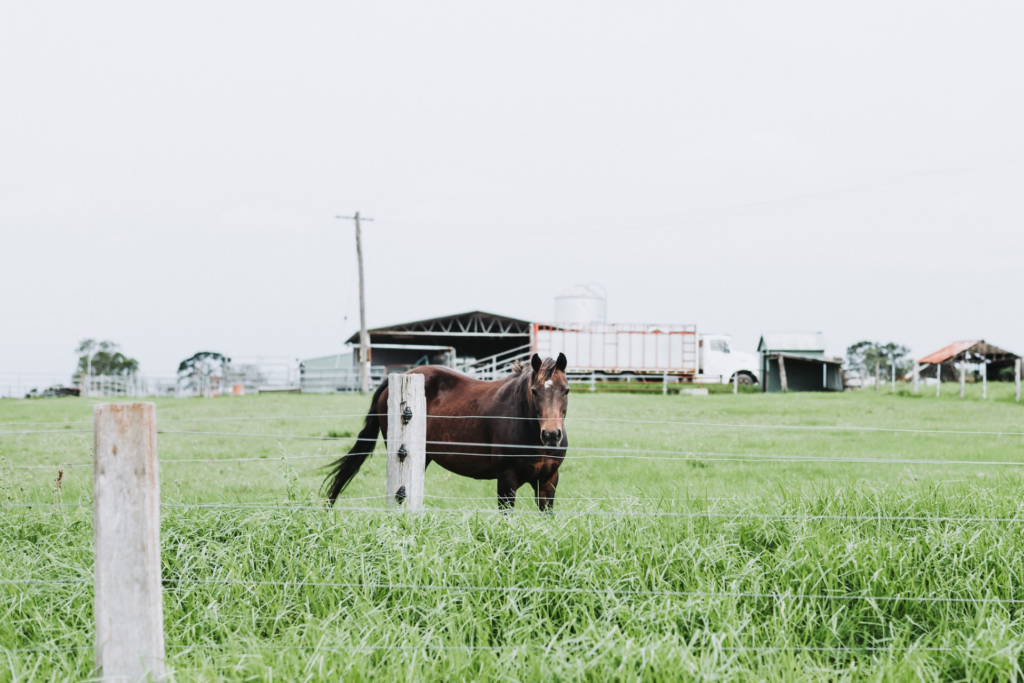
How Does Wind Chill Factor Affect Horses?
Wind chill factor is “a measure of the rate of heat loss from skin that is exposed to the air. It is based on the fact that, as wind speed increases, the heat loss also increases, making the air ‘feel’ colder.”
This applies to horses, too. One way to offset the effects of the wind chill is to provide your horse with a shelter. If you have an outdoor arena, consider putting up a roof with gable infills to block the wind. If your horse is kept in a paddock, create an area that is sheltered from with wind, either by vegetation or run-in sheds that can be easily accessed. Or if your horse is stabled, make sure the stable is out of the wind – good airflow and ventilation is still important but ensure the stall is not draughty.
How Cold Is Too Cold For Horses? How Can You Tell If Your Horse Is Too Cold?
Horses are more tolerant of cold weather than heat, but that doesn’t mean that they don’t feel the effects. When the temperature drops, horses use extra energy to keep warm and, as we have already discussed, they can be at risk of getting sick.
So, how can you tell if your horse is feeling the chill? Some of the signs that a horse is too cold include:
- Hunching up their body to conserve heat
- Lifting its feet off the ground
- Pawing at the ground
- Shivering
- Seeking shelter or huddling with other horses
- Whinnying or calling out more than usual
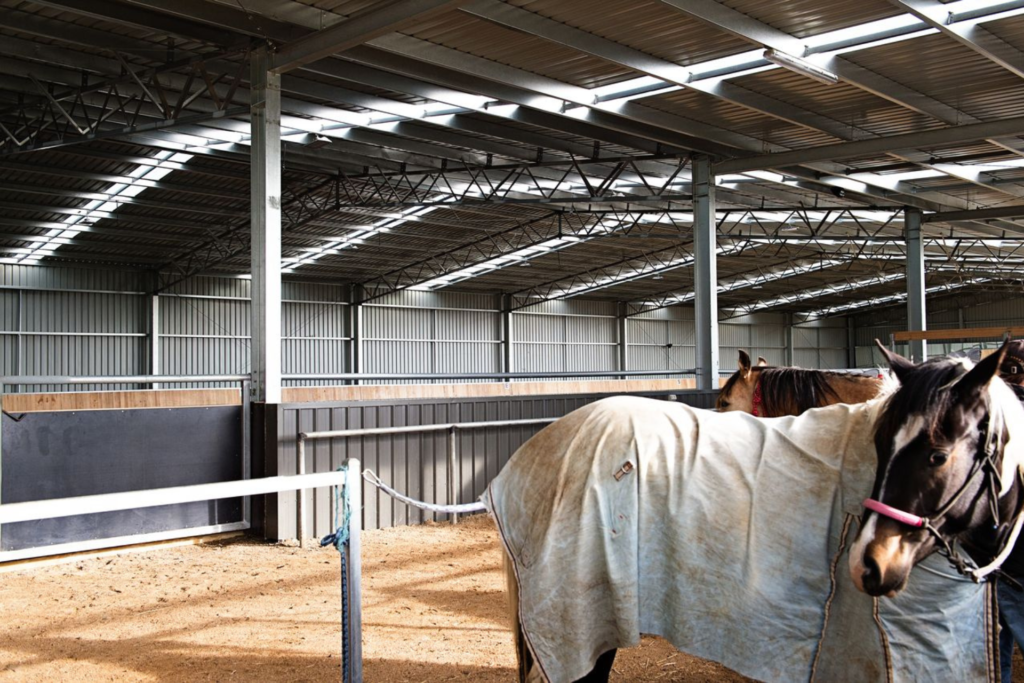
How To Care For Your Horse In Cold Weather
- Provide shelter
First and foremost, you need to ensure that there is shelter available to your horse. There are a few different types of shelters you can provide for your horse, depending on your budget and the amount of space you have available.
Shelter can be in the form of an undercover working area such as a covered riding arena, or horse shelters in paddocks such as small three-sided run-in sheds. Trees and native vegetation can also act as a wind barrier. Horse-friendly trees include Silver Birch and Yellow Box.
- Provide plenty of good quality hay and water
Ensuring your horse has access to plenty of good quality, palatable hay and drinking water is essential in cold weather. Horses can get dehydrated more easily in the cold weather, particularly if the water is too cold to drink, so it is important to keep an eye on their water intake. Horses also tend to burn more calories in the winter trying to keep warm, so they will potentially need extra hay to maintain their weight and condition.
- Rug up
Make sure you rug up your horse properly according to the weather conditions. Horses with short coats or those that are clipped may need extra protection from the cold.
- Regular trimming and shoeing
Cold weather can also affect horse’s hooves – in winter, horse’s hooves can crack and split more easily so regularly applying hoof oil and regular trimming and shoeing can help.
Should I Put A Rug On My Horse?
This is a very common question asked by horse owners in colder climates! And, the answer does depend on a few factors.
If your horse is clipped and/or has a thin or short coat, then they will likely benefit from wearing a horse blanket when the temperature starts to drop. A good rule of thumb is to start using a horse blanket when the temperature drops below 10°C – but this does depend on the individual horse and the climate.
You should also take into account your horse’s activity level when deciding whether or not to use a blanket.
It is also important to pay attention to the weather forecast particularly when the nights are cold and the days are warmer – if this is the case remove the rug early in the morning before the horse becomes uncomfortable.
To help determine whether you should rug your horse, read this article from CEN Nutrition, which discusses rugging your horse and understanding a horse’s thermoneutral zone. This article from the RSPCA is also helpful.
We hope you found this article helpful, and that it has helped answer the question – how does cold weather affect horses? For more articles like this, check out our Learning Hub. You might also like this article – How Hot Weather Affects Horses.
Remember, information in this article is general only and should not be used in place of expert veterinary medical advice. Consult your veterinarian before treating your horse.

